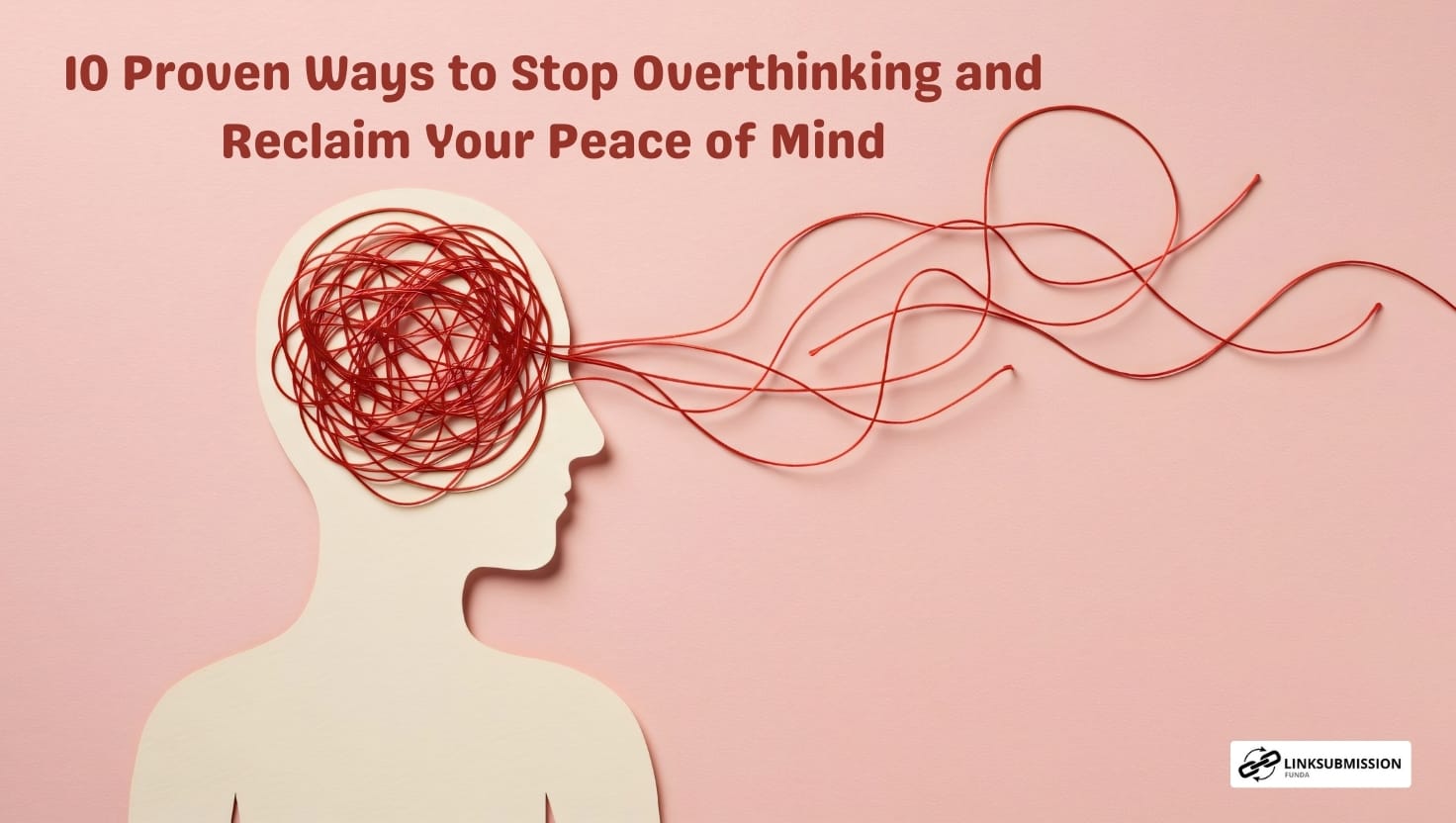Overthinking is something almost everyone struggles with at some point. Whether it’s replaying past events, worrying about the future, or creating problems that don’t exist, overthinking drains mental energy and stops us from living fully. It leads to stress, anxiety, insomnia, and even physical tension. The good news? Overthinking is a habit—and like any habit, it can be changed with conscious effort and practice.
Here are 10 proven, practical ways to stop overthinking, reduce mental clutter, and build a calmer mind.
1. Identify Your Thought Patterns
The first step to overcoming overthinking is becoming aware of when it’s happening. Pay attention to triggers—specific situations, people, or moments that spark overthinking. Once you recognize these patterns, you can interrupt them and shift your focus before they spiral out of control.
Ask yourself:
Is this thought helpful? Is it based on facts or assumptions?
2. Write Your Thoughts Down
Journaling is a powerful tool for clearing the mind. When thoughts stay in our head, they grow and spin uncontrollably. Writing them down instantly creates structure and clarity. It also helps separate real problems from imagined ones and reveals solutions that were not obvious before.
Try a nightly brain dump—write everything you’re thinking without judgment for five minutes.
3. Limit Your Decision-Making
Overthinking often comes from too many choices—what psychologists call decision fatigue. Simplify your life wherever possible:
- Prepare weekly meal plans
- Create morning routines
- Limit daily wardrobe choices
- Prioritize tasks
The fewer decisions you have to make, the more mental clarity you’ll gain.
4. Practice Mindfulness or Meditation
Mindfulness trains the brain to stay present rather than stuck in past regrets or future worries. Just 5–10 minutes a day can significantly reduce stress and improve emotional balance.
Simple practice:
Focus on your breath—in for 4 seconds, out for 6.
When thoughts wander, gently bring attention back.
Meditation doesn’t stop thoughts—it teaches us not to attach to them.
5. Set a Time Limit for Thinking
If you catch yourself overanalyzing something, set a timer:
“I will think about this for 10 minutes, and then I’ll move on.”
This creates mental discipline and prevents endless rumination.
When the timer ends, either make a decision or consciously choose to revisit it later.
6. Focus on What You Can Control
Overthinking usually arises from worrying about things outside our control—other people’s reactions, unpredictable outcomes, or possible scenarios.
Make two lists:
- What I can control
- What I cannot
Put energy only into the first list.
Letting go of what you can’t control is freeing.
7. Take Action Instead of Waiting for the Perfect Moment
Overthinkers often wait endlessly to act—fearing mistakes, judgment, or failure. But clarity usually comes through action, not before it.
Break tasks into small steps and start with step one. Action creates momentum, and momentum kills overthinking.
8. Challenge Negative Thoughts
Don’t accept every thought as truth. The mind exaggerates problems and creates worst-case scenarios.
Ask these reality-checking questions:
- What evidence do I have for this?
- What’s the worst that could happen—and can I handle it?
- Will this matter in a month or a year?
Most worries lose power when questioned logically.
9. Keep Yourself Physically Busy
Movement disrupts repetitive thought cycles. Whether it’s exercise, cleaning, walking, dancing, or playing a sport—engaging your body reduces mental stress chemicals and increases dopamine and serotonin.
Even a 10-minute walk can reset your mind.
10. Talk to Someone You Trust
Sometimes saying things out loud gives clarity instantly. A friend, mentor, coach, or therapist can help you see new perspectives. Sharing reduces emotional isolation and lightens mental load.
Remember—seeking support is a strength, not a weakness.
Final Thoughts
Overthinking won’t disappear overnight, but consistent small steps can transform your mental state. Every time you interrupt an overthinking loop, you train your brain to choose clarity over chaos. Be patient with yourself—progress matters more than perfection.
Make this your affirmation:
I am learning to let go of what I cannot control and focus on what I can.
Take one strategy from this list and start applying it today.
Your mind deserves peace—you have the power to create it.





